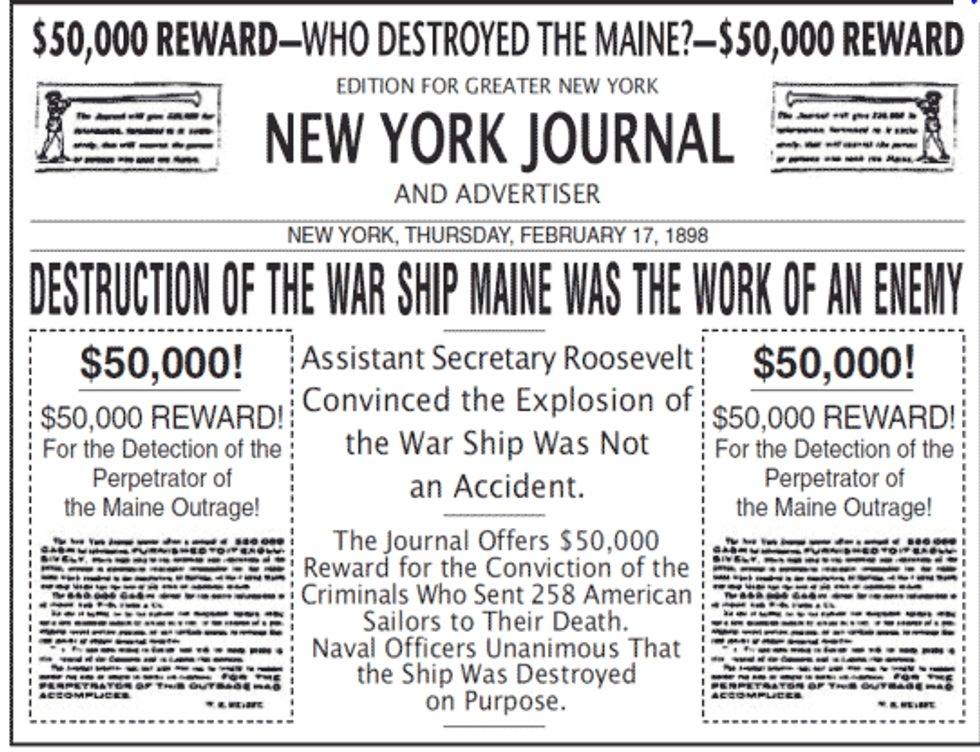You scroll on Facebook. Past the fifth engagement announcement this week. Past your dad's tenth post about your cat. Past a tempting food video you know you'll never have the supplies or time for. Past the - wait a minute - what does that headline say?
"Man opens cardboard box for Christmas. What he finds next will SHOCK you."
What? What? What could possibly have been in that box? The Declaration of Independence? The ring of power? Nothing?
You click on the article. Ads clutter every corner of the screen. A sliver of text hovers beneath a picture with an arrow beside it (which you have to click approximately 20-20000 times to access the next part of the script). The narrative usually goes something like this:
"Justin Case didn't expect much for Christmas." ---> (click next)
"He had a hard holiday season, just scraping by from paycheck to paycheck." ---> (click next)
"But his daughter surprised him on Christmas . . . " ---> (click next)
"Morning." ---> (click next)
"She brought in a cardboard box." ---> (click next)
"With no wrapping paper." ---> (click next)
"Case opened the box but did not expect to find . . ." ---> (click next)
"A" ---> (click next)
"new tie" ---> (click next)
"that his daughter bought him . . . " ---> (click next)
"with her own money."
If you are successful enough not to "win" a free iPhone on one of these sites (sometimes pages will take you to other pages filled with ads), you will kill at minimum 20 minutes trying to wade through a clickbait article.
What is Click Bait?
According to our friend Webster, "online material (such as headlines) designed to make readers want to click on hyperlinks especially when the links lead to content of dubious value or interest."
In other words, websites create outrageous headlines for often mediocre articles. The sensational titles draw readers in. The more readers = more clicks for the website = more money.
- Exaggerated titles
- Skewed info
- Mediocre content
Sound familiar to another period in history?
Does it still happen?
Buzzfeed claims this scheme reached a decline in 2009. Facebook plans to penalize articles with clickbait headlines.
Yet, clickbait still thrives. And will likely see another year in 2017.
Why does it still happen?
Websites still use this technique, despite penalties, because they receive a significant amount of clicks. Alternative Nation writer Brett Buchanan offers some insight into why this happens.
He claims Facebook monopolizes what articles users can view through an algorithm. Buchanan finds himself in a Catch-22 because the articles with sensational clickbait titles always receive 10X more clicks than the ones that don't. He sees clickbait writers as victims who are merely trying to make ends meet and have to succumb to using such headlines in order to beat the Facebook algorithm.
Why we should leave clickbait articles in 2016
All due to respect, Mr. Buchanan, but when did sacrificing conscience for clicks ever seem OK?
Click bait articles tend to promote the following
- Lazy writing
- Exploitation of readers
- Exaggerated or misleading headlines
- Dangerous malware or phishing included in links
- Blocking users from access to other articles without clickbait titles*
*If articles garner more hits (more clicks), others (without clickbait titles) which do not receive as many views will be penalized and reach a smaller audience.
If you want to blame Facebook for why you need to use clickbait titles, post somewhere else.
I understand the need for compelling titles. We use them for Odyssey articles. But, if the title misleads a reader, the author should change it.
I don't care if the titles "work" to draw in audiences. I don't care if authors want to battle an all-powerful algorithm. I don't care if a man opens a cardboard box and the contents inside will SHOCK me.
I care about integrity. I care about the readers. I care about the time they gave me to read this article.
SHOCKingly, they can't get that time back. Do not exploit it.






















